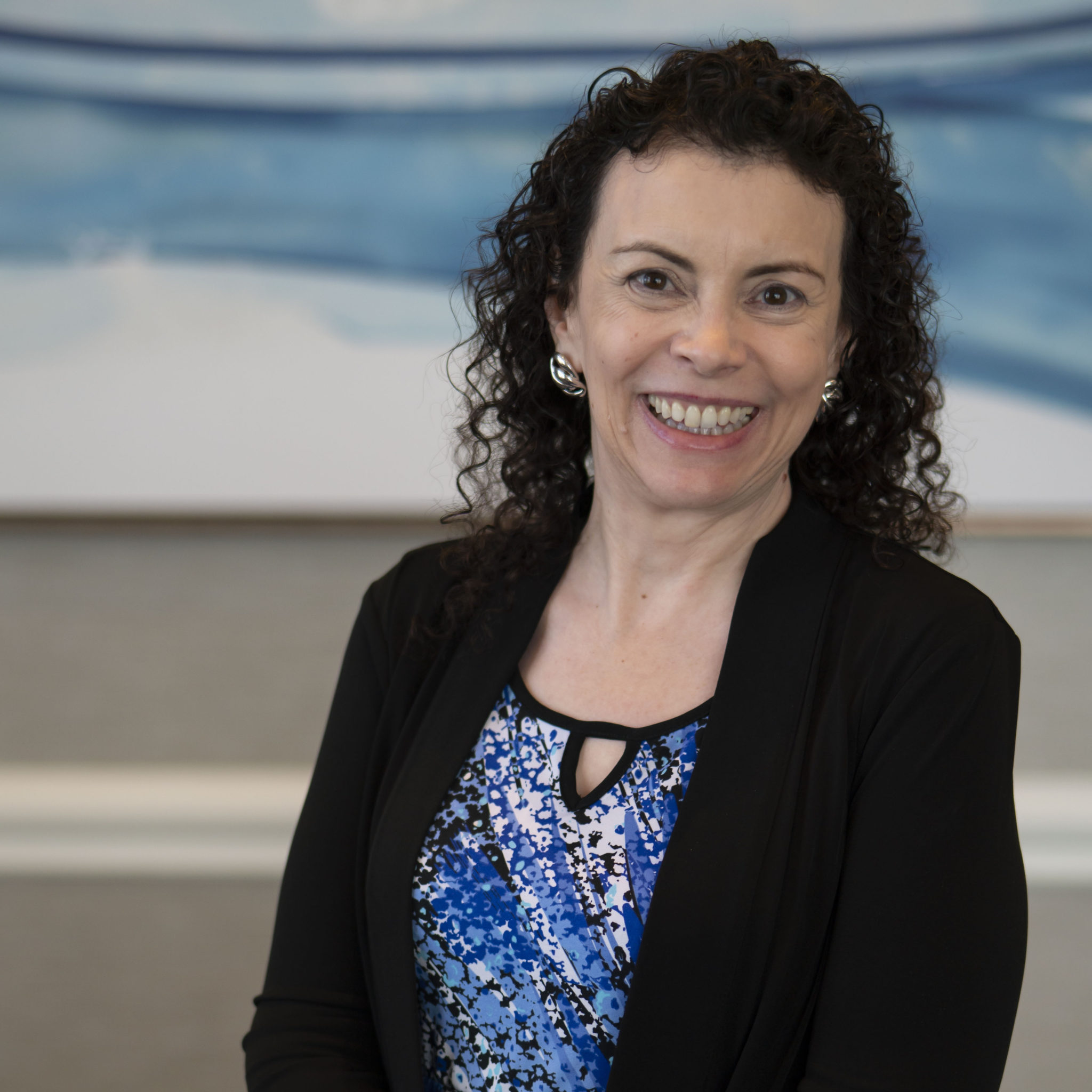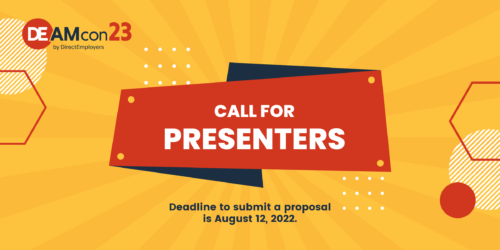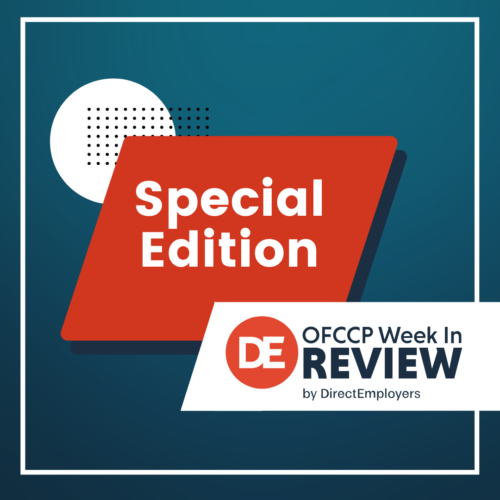
We hope you enjoy this tour of the DEAMcon22 conference and vicariously absorb some of the rich content of what many describe as the country’s most diverse and educational EEO meeting each year. And with warm thanks to Cyndi for joining our WIR team for this special event! Explore key sessions on day two:
- Wake Up Call! Michael Murray Revealed The Power of Disability Inclusion
- OFCCP Director Yang Revealed: Subgroup Goals & Non-Binary Gender Reporting Are On Her Agenda
- Brian Pier Canvassed Modern Data Privacy Laws From A to Z
- Vanderbilt Health Professionals Discussed How To Build Authentic Relationships with Diverse Community Organizations
- Fox and Chambers Performed A Mock OFCCP Audit Covering The “Hot” Compliance Issues
- Polcer & Fiore Highlighted On-Demand Disability Education to Match Your Needs
- Scott Lesnick Delivered A Keynote With Practical Tips to Attract, Engage & Retain 5 Unique Generations Of Employees
Wake Up Call! Michael Murray Revealed The Power of Disability Inclusion
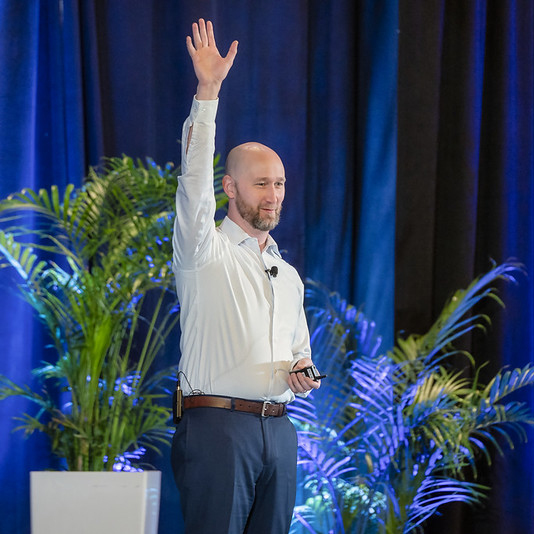
Legal compliance requirements are “incredibly valuable” because they are “the foundation we have to work from.” Nevertheless, “compliance by nature is temporary,” Michael observed. “If you do not help people see a higher reasoning and understanding, the background is going to fall away.” Yet, hiring people with disabilities simply because “it is the right thing to do” can also be problematic. “For those of us with disabilities, pity is worse than outright discrimination,” he said because it undermines a person’s belief in their abilities and potential.
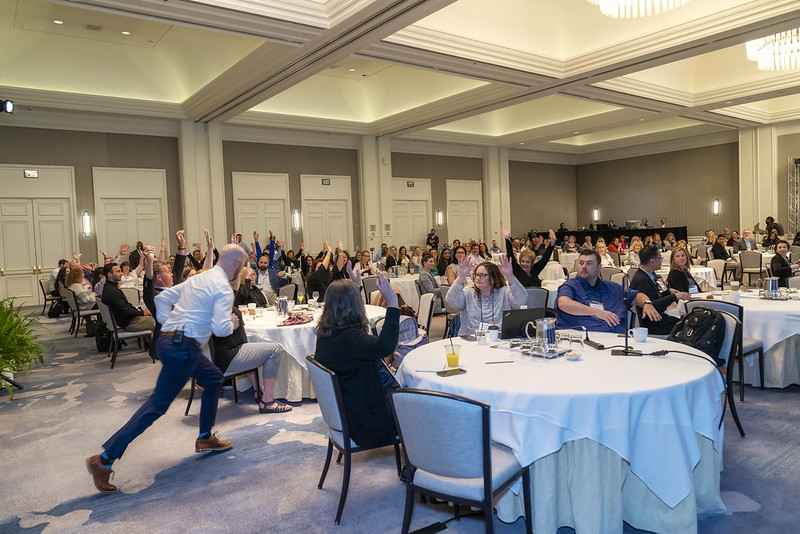
Creating a disability inclusive environment, requires an examination of subtle messages – micro-inequities and unconscious bias – that can limit the inclusion of people with disabilities in the workplace. Michael provided several examples of such messages. Among other things, he cautioned against making assumptions. “If you have met one person with a disability, you have met one person with a disability,” he stated.
A systematic approach is needed to ensure the building of inclusive environments that requires an examination of organizational systems, policies, and procedures. Along those lines, Michael suggested centralized accommodation funding so that managers will not have to worry about whether hiring a worker with a disability will impact their specific budget.
OFCCP Director Yang Revealed: Subgroup Goals & Non-Binary Gender Reporting Are On Her Agenda
We covered OFCCP Director Yang’s Key Note presentation at length last week in our Week In Review published Monday April 25, 2022 which you may find here.
Brian Pier Canvassed Modern Data Privacy Laws From A to Z
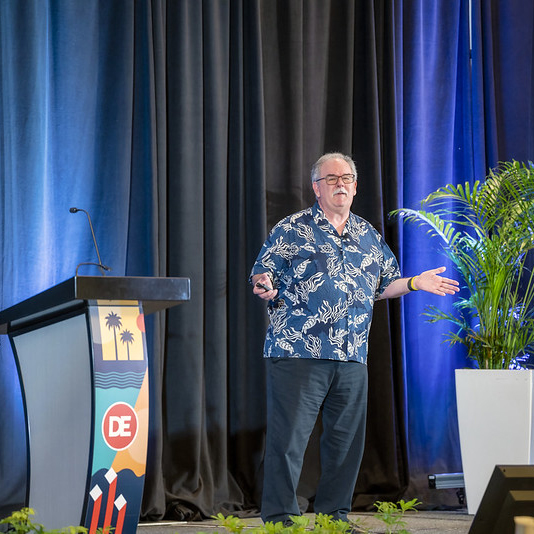
Under most of the data privacy laws, individuals are given rights over their data to: (1) restrict processing; (2) obtain copies of their data; and (3) request correction or deletion. Adequate data protection is also required with almost all the laws protecting an individual’s name, contact information, employer/position, ID numbers, and accounts/passwords. In addition, most laws require data collectors to make some sort of a disclosure of: (1) data privacy policy and practices; and (2) the collector’s intended use of the data.
“Someone in your organization is deciding how to comply with these laws” so you should be in contact with folks who are making these decisions within your organization,” he told the audience. “You don’t need to know all the details as long as you keep in contact with those who do.”
Pier also detailed several ways EEO and affirmative action compliance officers can help their companies with data privacy and data breech compliance.
Vanderbilt Health Professionals Discussed How To Build Authentic Relationships with Diverse Community Organizations
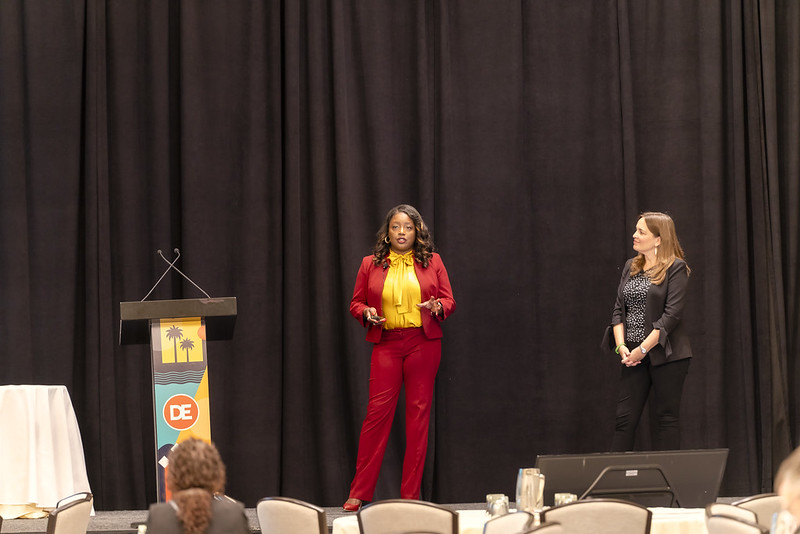
A big part of their effort to meet these goals involves allowing internal candidates to grow within the organization, Megan reported. In addition, Relationship Managers serve as the liaison for VH to the community organization, Novonda added, noting that supporting various diversity organizations within the community is a means to show the hospital’s commitment to make diversity intentional.
VH partners with community organizations by: (1) participating in programs to bring awareness of employment opportunities at VH; (2) attending meetings, conferences, and job awareness programs; and (3) providing resume review and mock interview services. Everyone on their Talent Team is required to attend a minimum number of events. The presenters then detailed their various community organization partners and the types of activities they do with these groups.
Fox and Chambers Performed A Mock OFCCP Audit Covering The “Hot” Compliance Issues
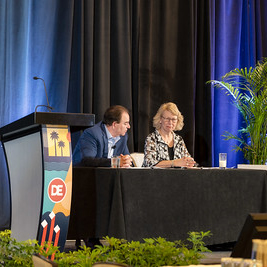
First, the VEVRAA “listing v posting” issue. John accused The Good Guys of not “posting” their jobs. However, Candee pointed out that VEVRAA regulations (41 CFR §60-300.5(a)(2)), rather, require covered contractors to “list” all employment openings — for jobs lasting longer than three days and not involving an executive or senior management position — with “the appropriate” employment service delivery system (ESDS) in the “manner and format” that ESDS “permits or requires.” OFCCP’s regulations never require a contractor to “post” their available jobs, Candee maintained and noted that “posting” is a “nice-to-have” activity to help recruiters find interested jobseekers. It is the ESDS, a/k/a One-Stop/American Job Centers which thereafter “posts” the jobs, not the contractor, unless the contractor undertakes to later also “post” its jobs for its convenience, as DE does for its Member companies in addition to earlier “listing” those same jobs. Accordingly, the applicable regulations require contractors to “list” the jobs, rather than “post” their jobs (two different things). As a result, Candee pushed John into agreeing that he had used the wrong language by accusing The Good Guys of having failed to “post” its available jobs.
Second, John, as the OFCCP stand-in, asserted it had “indicators” that The Good Guys “is and has been for some time unlawfully discriminating in the selection of African-Americans to be production laborers” for a specified job group. This part of the audit covered the various legal requirements for statistical analysis in failure-to-hire cases. Among the specific points made here were that “not best qualified” is “the absolute worst disposition code on the face of the earth,” according to Candee. John momentarily joined Candee going “out of costume” to explain that courts typically do not endorse that particular disposition code because it is not sufficiently detailed to explain the contractor’s “legitimate non-discriminatory reason(s)” for failing to advance the candidate in the contractor’s selection process.
Third, the agency claimed to have “indicators” that women were victims of compensation discrimination in the contractor’s entry-level “Professional Job” classification. Here, the performers illustrated OFCCP’s current push to get contractor’s internal compensation analysis, even those covered by attorney-client privilege. In addition, they covered when cohort, as opposed to systemic, analyses are merited, and what constitutes “similarly-situated” employees.
Finally, John alleged that the contractor had discriminated unlawfully pursuant to Executive Order 11246 against an incumbent transgender employee who was assigned the female gender at birth but was at the time of the make-believe audit transitioning to become a male. Good Guys denied this employee’s use of a male bathroom facilities, even though he was under doctor’s orders to use them. In addition, The Good Guys medical insurance plan denied the employee’s request to cover his upcoming gender affirming surgery.
Candee argued back, though, that under the SCOTUS’ TWA v Hardison case decision, The Good Guys did not have to accommodate its transgender employee because the requested accommodations created an “undue hardship” on male users of the male bathroom. However, John clarified while in costume as OFCCP that the agency was not asserting a right of accommodation under Section 503 of the Rehabilitation Act. Rather, the employee was not asserting a right of disability, but rather, this was “a straight up old-fashioned direct evidence case of unlawful discrimination pursuant to Executive Order 11246” John asserted, performing as an OFCCP Compliance Officer. John then emphasized that the SCOTUS’ 2020 case decision in the Bostock case had found that Title VII’s sex discrimination prohibition had since 1964 prohibited gender identity discrimination since such discrimination was “because of sex.” Next, employers are not permitted to accommodate unlawful discrimination, Fox further explained, stating that “[t]his gentleman is simply asking to not be discriminated against based on his gender,” which is male. This was not a case of accommodation and whether the employee’s request, if honored, would cause an “undue hardship.” Rather, this is a straightforward case of treating employees differently, in this case because of this employee’s gender, John asserted on behalf of OFCCP.
However, Candee had another winning argument up her sleeve: the SCOTUS’ 2020 Bostock case decision, she argued, not only did not address the bathroom issue or the insurance issue, but the court had specifically reserved addressing the bathroom issue at all in its Bostock case decision. So, Candee triumphantly forced John to concede that these issues were open legal issues of first impression and there was no established law (yet) compelling The Good Guys to comply with the transgender employee’s request. John then reported he would recommend both issues for enforcement to the OFCCP Director to determine how to proceed as a matter of policy and the Solicitor to determine how to proceed as a matter of law.
Note: Candee and John put on this skit to illustrate the current uncertain state of the law. DirectEmployers does, however, permit transgender employees to use the bathroom at work with which they identify, despite the uncertainty of the law on the bathroom issue.
Polcer & Fiore Highlighted On-Demand Disability Education to Match Your Needs
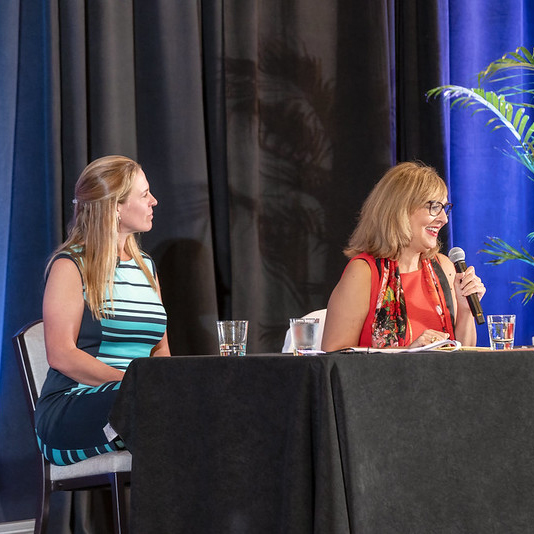
Acknowledging that the audience was already well-versed on the topic, Jen said, “We want to empower you with this information to take back with you so you can get your people on board.” Moreover, disability education goes beyond the workforce. “It’s not a check the box type of a thing. It’s not a client’s thing. We’re talking about our friends, our family, our parents, our kids, our siblings, pets,” she pointed out.
“Our courses are going to show you from the peoples’ perspective what it’s like to have a disability,” explained Janet, the course author. “You don’t get to see inside the classroom and the training center and the office where the actual accommodation takes place all the time. That’s the world that we work in, and that’s what the content includes.”
Scott Lesnick Delivered A Keynote With Practical Tips to Attract, Engage & Retain 5 Unique Generations Of Employees
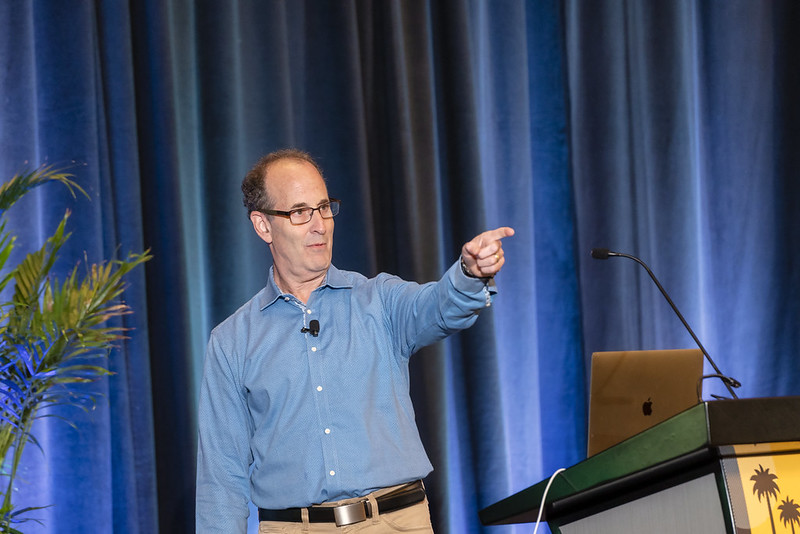
Scott also encouraged HR to go out and mingle among other employees, pointing out that many workers tend to avoid HR. “Go wherever you need to go without any more purpose than the fact that you want to share some time and listen,” he recommended. “You don’t want to talk to them about work unless they want to talk about work….The more you mingle the more information they’re going to share because they’re going to be more comfortable with you.”
Scott ended Day 2 of the conference on a rousing note, as the day had begun with Michael, as attendees departed for the adjacent Demo Hall and reception to network with other attendees and with conference underwriters.
THIS COLUMN IS MEANT TO ASSIST IN A GENERAL UNDERSTANDING OF THE CURRENT LAW AND PRACTICE RELATING TO OFCCP. IT IS NOT TO BE REGARDED AS LEGAL ADVICE. COMPANIES OR INDIVIDUALS WITH PARTICULAR QUESTIONS SHOULD SEEK ADVICE OF COUNSEL.
SUBSCRIBE.
Compliance Alerts
Compliance Tips
Week In Review (WIR)
Subscribe to receive alerts, news and updates on all things related to OFCCP compliance as it applies to federal contractors.
OFCCP Compliance Text Alerts
Get OFCCP compliance alerts on your cell phone. Text the word compliance to 55678 and confirm your subscription. Provider message and data rates may apply.
About the Guest Author
